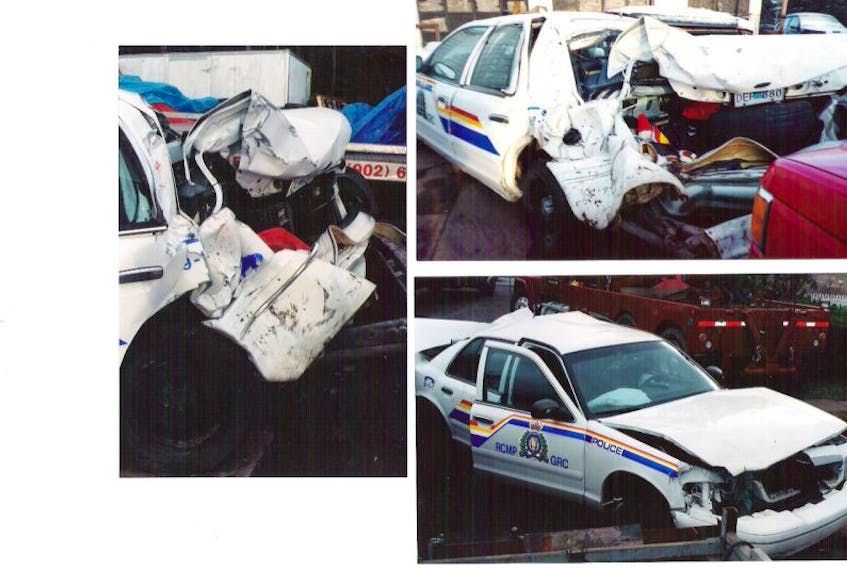Const. Francis Deschenes was killed when he was struck by a utility van on Tuesday evening while helping a pair of motorists change a tire on a busy stretch of Trans Canada Highway.
Paul Calder was helping a motorist at the side of the highway near Amherst on Nov. 11, 2001 when his vehicle was struck from behind by a shuttle van on its way to Prince Edward Island.
“I’ve spent a lot of time reliving my accident since I heard about the crash. There were so many similarities,” said Calder, who is a vocal proponent of the Nova Scotia government’s move-over legislation. “I was very lucky to have survived.”
Calder was on his way back to Amherst from Oxford on Remembrance Day six years ago when he saw a vehicle off the highway and another vehicle stopped to help.

He stopped his vehicle and activated his safety lights. After discovering there were no injuries, he asked the female driver of the car to sit in the front seat of the cruiser so he could ask her some questions about the crash.
“The next thing I remember, I was laying across the front seats of the car with a cool breeze across my face and looking up at Mike, a paramedic I knew,” Calder said. “Mike asked me if I knew where I was and I told him I thought I had an accident on the Pass. He said, ‘Not quite, we’re not on the Pass, but you were in an accident.’”
The shuttle van had struck the left rear of the police cruiser, propelling it forward into the small truck. The van spun around and struck the truck as well pushing it into the ditch, hitting the truck’s driver on the thigh and knee.
Calder ended up with a serious concussion, an injured shoulder as well as cuts and bruises. He had been unconscious for 20 minutes, to the point the woman who he was talking to before the crash had to extricate herself from under what she thought was a dead RCMP officer in order to get out of the car and call 911 on her cellphone.
To Calder, that crash and Tuesday’s collision that took Const. Deschenes’ life drive home the need for motorists to slow down and move over when they approach any emergency vehicle on the highway.
“The law’s been in effect here for six years but there are a lot of people who still know nothing about it,” Calder said. “The powers that be have to do more to make people aware of it.”
Calder said there are signs near interchanges on highways in Alberta that remind people move over and slow their vehicles to 60 km/h when passing emergency vehicles at the side of the road with their lights activated. He thinks that would be a good idea in his part of the country as well.
“When I was working every time I got out of my vehicle I had to be aware of what was coming on the highway,” he said. “You just never knew if you were going to get hit. Some people just don’t pay close enough attention to what they’re doing on the highway, especially when they come upon a police vehicle, ambulance or fire truck stopped at an accident on the highway. Most people move into the other lane, mostly out of courtesy without knowing it’s the law. Sometimes you can’t move over, but you have to slow down to 60 (km/h).”
He hopes the crash leads to increased public awareness about the safety of emergency responders at the roadside.
RELATED
RCMP seeking information regarding crash that killed Const. Deschênes
Nova Scotia RCMP mourning loss of Amherst officer
Nova Scotia RCMP officer killed on New Brunswick highway remembered as well-loved, brave
Nova Scotia RCMP officer killed in traffic collision near Memramcook, NB
[email protected]
Twitter: @ADNdarrell









